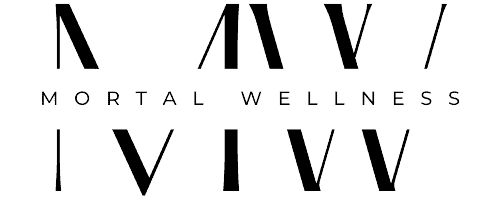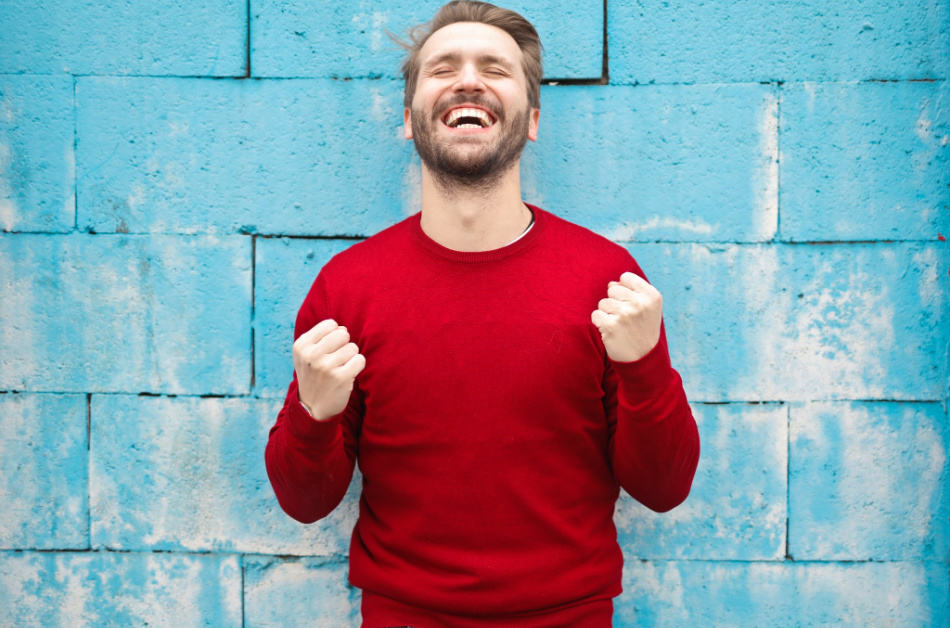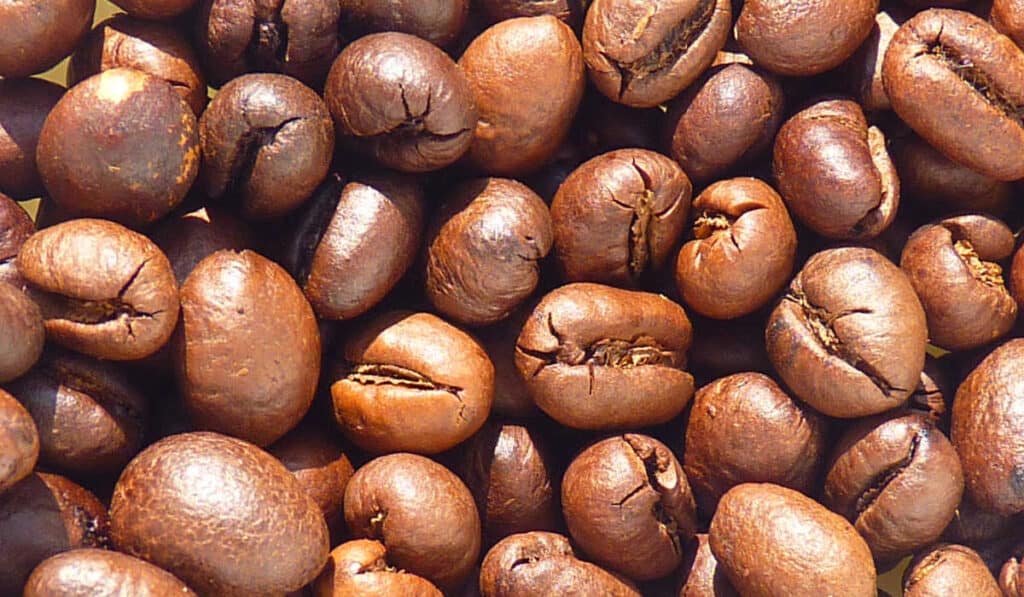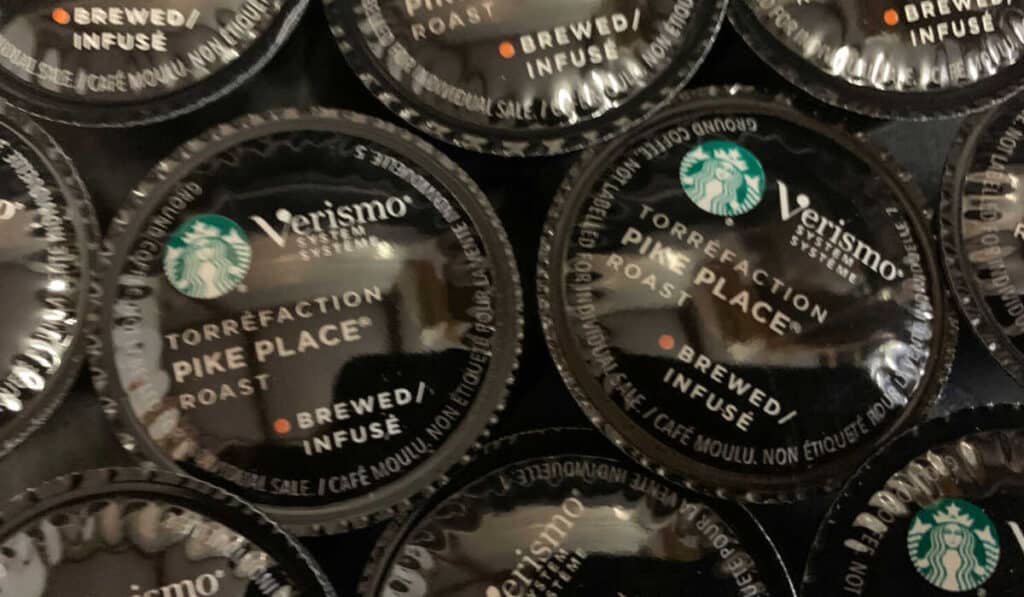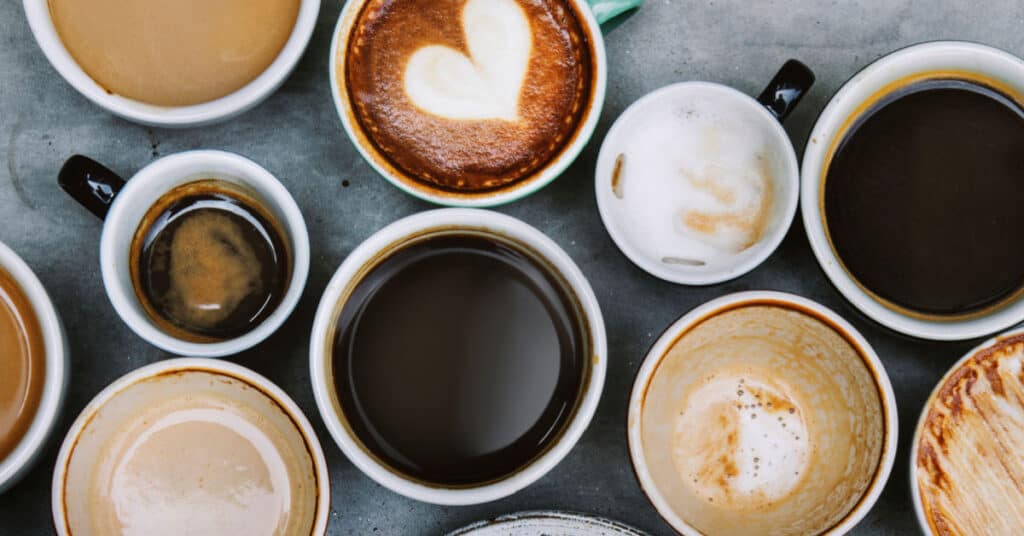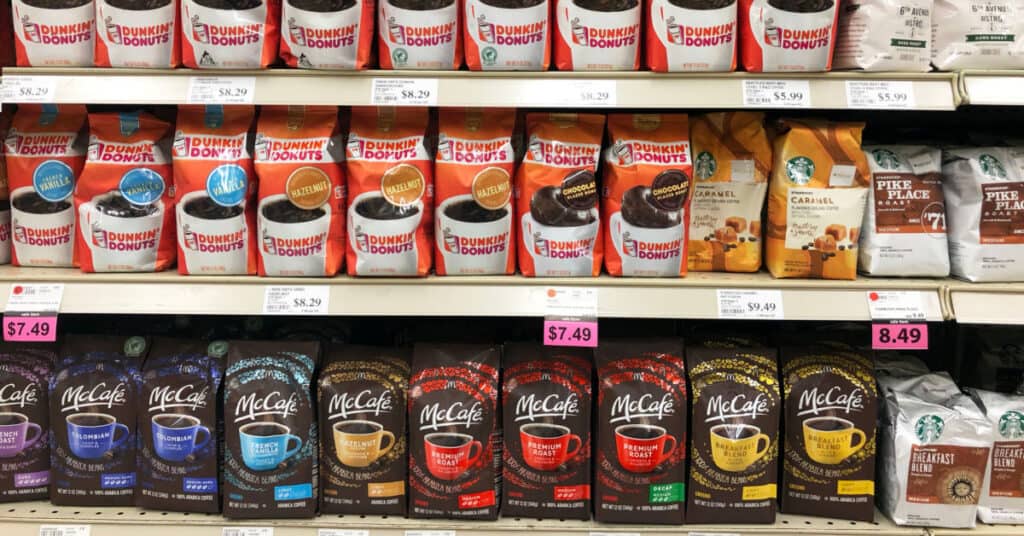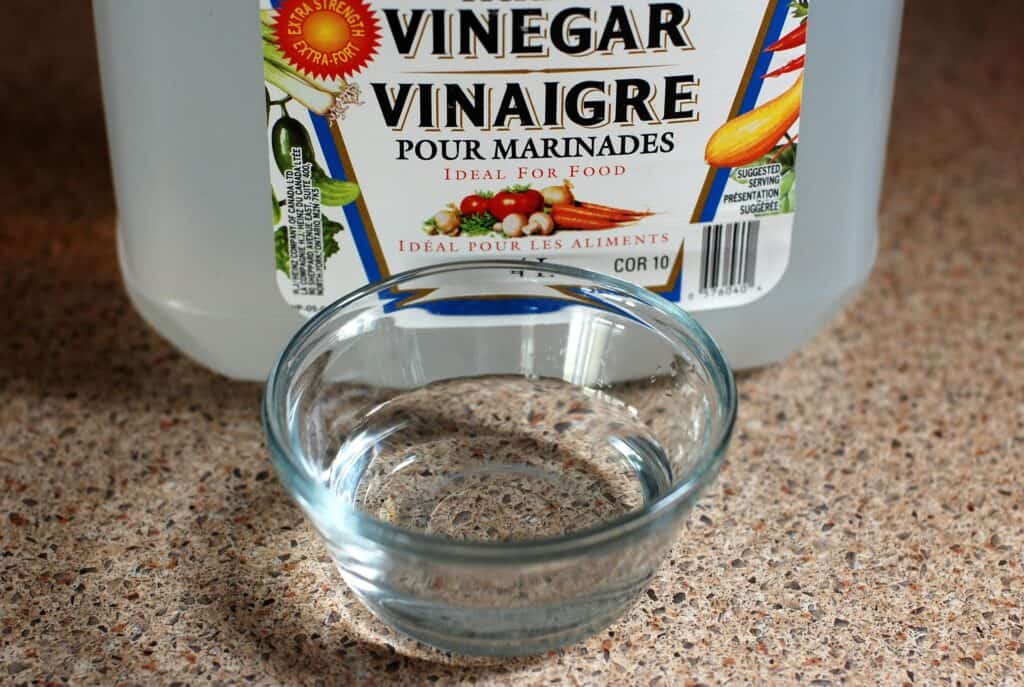As an Amazon Associate I earn from qualifying purchases.
During my first year of college, I figure I consumed almost 300 grams of caffeine (that’s nearly 3,000 cups of coffee). By the end of the year, it seemed like I didn’t have any energy no matter what I drank or did. It wasn’t until a year or so later (when I was even more burned out) that I realized that not only was my caffeine consumption ruining my life but that if I consumed my yearly caffeine quota all at once, it would be enough to kill me 19x over.
If you’re the “cup-of-coffee-when-I-wake-up-type” then more power to you. I was the “energy drink when I woke up, another one before my 10:00 class, just one more for the afternoon slump, a 4th one for the gym, and one more to get through my homework type). Unfortunately, that’s not an exaggeration. 3 energy drinks and a pre-workout drink per day (equivalent to 7-8 cups of coffee) were normal for me.
Looking back, I’m incredibly impressed that my body fared as well as it did processing large amounts of a toxic and addictive substance. In fact, if you have been building up your tolerance over a period of years, you are probably drinking amounts of coffee that would be dangerous to a non-coffee drinker. But if you’re thinking about a life without caffeine, you probably know all of this.
So I’ll cut to the chase:
In my opinion, life without caffeine is better. I have more consistent energy, sleep better, have more creativity, fewer digestion issues, fewer headaches, improved mood, and more money.
However, going without caffeine at first wasn’t nearly as rosy as that list makes it sound. The first weeks without caffeine were hell, the first months were rough, and the first year was (mostly) okay. Even after a full year, I still first think of caffeine when I need to give a presentation or have a particularly difficult work or spell coming up (or a family reunion…).
When I decided to write this article, I knew two things: giving up caffeine takes a lot longer than most people think, and the benefits are also greater than people expect. I have seen several people talk about going without coffee for a month or even 90 days and I can tell you that that is not long enough.
Because of that, the results are predictable.
Most people report that they decide to go back to their daily cup (or cups) of coffee. If you go a full year without caffeine (or learn how to detox faster) you’ll never want to go back to the way you felt before.
So my goal here is to give you the most accurate picture I possibly can without discouraging you. This is only possible because I have personally gone through everything I’m describing. So let’s get into it:
Life Without Coffee – The Short Term
Here’s the depressing news of a life without caffeine: your productivity and quality of life is going to drastically decrease for some period of time.
The reason I say “some period of time” is that this “period of suck” is going to depend on two different things: your specific body composition, and how proactive you are at supporting your body (meaning treating caffeine-induced deficiencies).
During the first week or so my experience of caffeine withdrawal included:
- Headaches. Lots of them. If you use caffeine you know the feeling.
- Lethargy and lack of motivation. Not only was my energy tank at absolute zero during this time, but so was my willpower. There were times when I could literally lay on the couch for an hour or two and no amount of self-flagellation would get me up to do something productive.
- Irritability. Think you’re cranky if you miss your morning cup of coffee? Try missing your morning cup of coffee for a week.
- Flu-like Symptoms. This can vary widely from person to person (or so I hear) but I got achy, had a runny nose, and felt generally weak and crappy.
Unfortunately, there is no magical cure for getting through this time. A proper supplement routine can help, but you’re also going to want to take some Aleve for that headache.
Tapering or weaning off of caffeine more slowly can help to mitigate some of these symptoms but, in my experience, it just makes the period of suck last longer. I chose to just rip the bandaid off so I could get back to normal life as quickly as possible
Life Without Caffeine – Mid Term
After the first week or two, I was left feeling relatively fine. I definitely didn’t feel super energized or great but I was no longer feeling like roadkill.
This was perhaps the most difficult time because I couldn’t really appreciate all the hype of “a caffeine-free life.” My energy was significantly more stable throughout the day but I still wanted to use caffeine every time I had something coming up (a presentation, project deadline, etc.)
Luckily, I had followed enough of other people’s detox stories to know that giving up caffeine can take a very very long time. There are some people who can be feeling great within a couple of days of no coffee but I’m not one of them. So during this time I just pretty much existed and got on with life.
Life Without Caffeine – The Long Term
From my experience, it takes about 3 months to really start feeling good without caffeine. Now that’s not to say that my first 3 months were miserable. With the exception of the first couple of weeks, they mostly felt about the same as when I was drinking coffee/caffeine.
Around the three-month mark, however, I really felt like I was hitting my stride. My caffeine cravings were gone and I was able to get into deep work like I hadn’t been able to for a long time. My creativity increased, my willpower was great, my mood was consistently better, and my anxiety was totally gone for the first time in years.
How I Feel After Being Caffeine Free For A Year
After a full year off of caffeine, the list of benefits I have noticed is incredible. Is it enough to make me live a caffeine-free life forever? Probably not.
However, if you’re having trouble with anything of these, quitting caffeine and detoxing long-term might be in your best interest:
- Fewer headaches. This is probably the most obvious and universal of the “quit caffeine” crew results. I no longer get headaches from lack of caffeine or (as was more often the case) too much caffeine.
- Reduced heartburn. I used to get caffeine-related heartburn after every single meal, even if I hadn’t had any caffeine with that particular meal. My general gut health has improved and I no longer suffer from heartburn at all.
- More consistent energy. If you are tolerant of the amount of caffeine you’re drinking, you probably no longer feel energized at any time. After a year of no caffeine, my energy levels are higher than they were last year at this time when I was swilling Rockstars. In addition to higher energy, I no longer suffer from crashes or the extreme lows I had before.
- Improved Sleep. I was one of those guys who could drink a Rockstar and then head to bed. At least that’s what I told everyone. While I was able to sleep, I didn’t understand that caffeine was messing with my sleep in several ways. It didn’t allow me to truly enter a deep & restful state and (TMI warning) it made me pee once or twice every night (caffeine is a diuretic) which further fragmented my sleep. I now feel way more rested on way less sleep and don’t need anything to “kickstart” me in the morning.
- Increased Focus & Creativity. When I have large amounts of caffeine I develop what I refer to as a “rat brain.” I can get work done if I have projects pending but I have difficulty seeing the overall pictures and coming up with a creative way to approach my goals. In fact, several studies have found that caffeine increases productivity only on physical repetitive type tasks and creative or deep work suffers.
- Money Savings. In my year without caffeine, I figure I saved around $2,000. This is especially high because of my love for energy drinks. If you enjoy home-brewed coffee your savings in a life without caffeine would be less.
- Less Anxiety. At one point, everything stressed me out. I didn’t really cause it anxiety and the time and just thought I was stressed from burning the candle at both ends. Looking back it’s fairly obvious that the constant stimulated state I put myself in was simply raising my cortisol and my stress/anxiety levels.
- I enjoy music (and everything else) more. I don’t know of any scientific basis for this, but I can guess that since my brain is no longer in a constantly stimulated state I’m able to relax and let music tickle my brain in ways that it can’t when it’s hopped up on caffeine.
One of the benefits that I most enjoy is that going forward, I have the option of drinking caffeine when I want/need it. Before I detoxed, I was out of luck if I needed a burst of energy. Sure, I could drink an energy drink but it didn’t do much for me (and good sense usually stopped me from chugging multiple drinks at a time)
What Do I Drink Instead Of Coffe & Soda?
Water. As a functioning human being, I highly recommend that you focus most of your drinking on the substance that has supported our lives since before we crawled out of the mud a billion years ago.
However, if you mean a caffeine replacement, there are a few different things I drink. I drink lots of lots of herbal tea (mostly hibiscus) and use Pero instead of coffee.
Having a replacement ready to go can make the difference in whether or not you make it to the end. A large part of caffeine addiction is psychological (you feel like you need it to perform) so going without it is hard, especially for Type-A personalities. If you can sate your brain by giving it something similar, you’ll have an easier time of it.
Going forward, I plan on indulging in caffeine when I feel like it. I will probably limit this to once or twice a week. This is for a couple of reasons:
- A life without caffeine is hard to maintain. Sometimes you don’t want to be the awkward SOB of refusing coffee/tea/soda again and again and needing to explain that you want current don’t drink anyone them.
- Sometimes I want an extra boost. Although I have more energy in general, there are times when I’m working late and need an extra brain boost to see things through.
- Caffeine has several health benefits. In amounts less than 400mg per day, caffeine has been shown to have minimal side effects and several health benefits (such as increased metabolism, improved athletic performance, and increased sexual function in both men and women)
- There is caffeine in several drinks which I like and which are beneficial. Some of the most antioxidant-rich drinks in the world (green tea and yerba mate) are caffeinated. While there are other options (such as the above-mentioned hibiscus tea) sometimes I just want a regular cup of tea.
From here on out, I will be buying into the idea of “moderation in all things.” Caffeine isn’t all bad and, when used judiciously, can be a useful tool.
So, should you commit to a caffeine-free life?
Coming from a writer on GiveUpCaffine this might surprise you. But I don’t think you need to (or even should) live a totally caffeine-free life. A life without caffeine is great, yes, but I don’t expect it to be universally accepted. After all, most of the problems don’t come from having a coffee, they come from having way too much caffeine consistently.
The reason I choose (or chose) to go without caffeine 100% is that I don’t do moderation well. Either I’m on or I’m off. Committing 100% gave me a much better chance of being successful than if I had caffeine only once in a while. But you’re probably different.
So if you are drinking large amounts of caffeine you probably need to stop (and you’ll notice a slew of benefits when you do). But you don’t have to go stone cold. Just reduce your consumption to the point where you feel your best.
And if you feel your best drinking 10 cups of coffee per day, then why are you even here?
What’s The Least Painful Way To Give Up Caffeine?
I have quit caffeine now several times in my life. Every time when I go back to it I seem to go a little further and drink larger amounts of caffeine. While this can’t be healthy, it has given me a unique perspective on how to detox as quickly as possible.
While I seem to metabolize caffeine in such a way that it takes me a long time to get over my tolerance, there are supplements that help people get over their caffeine addiction in only 2-3 days. I wrote about the complete protocol in a long and exhausting article that you should go read called How To Detox From Caffeine.
So, if you want to quit, quit. Don’t make excuses. Just go into it knowing what you expect and stick it out until you feel amazing! It will happen!
